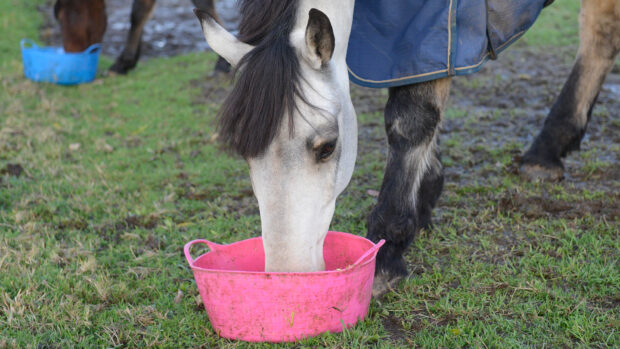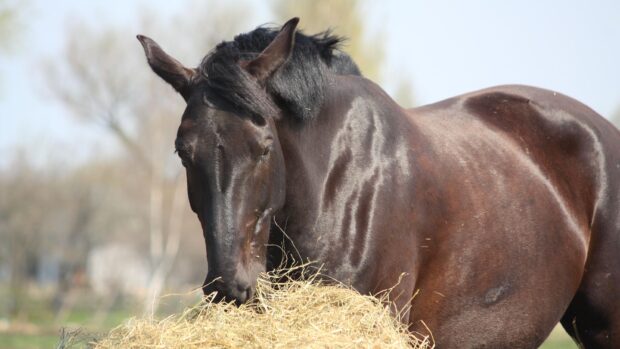Q: RETAILERS seem to be taking advantage of the shortage of grain, hay and straw due to last summer’s floods by hiking their prices. My local saddlery is selling hay and straw at £4 a bale, and I have now found the same with feed. Most of the popular brands have gone up more than £2 a bag. This is quite a squeeze on an already tight winter feeding budget.
With the increasing popularity of grain-based “bio-fuels” and more wet summers forecast, will feed and forage costs continue to rise? Or am I being ripped off — how much has the industry really been affected by the flooding? I would appreciate any advice on how to feed a horse on a “shrinking” budget.
KS, Staffs
WE asked some of the leading feed manufacturers for their thoughts on a problem currently affecting many horse owners.
Simon Parker from British Horse Feeds says: “As manufacturers, we have to sympathise with the reader’s feed merchant. Feed prices have increased and, in most cases, retailers are simply passing on the increases that have come through the supply chain. The ‘feed’ chain is really no different to the ‘food’ chain and, as we have all seen our supermarket bills increase dramatically over the past 12 months, horse owners are not immune to feeling the pinch.
“Grain prices have doubled in the past year, fuelling worldwide inflation and, although manufacturers try to hedge their future purchases of raw materials, eventually these increases have to be passed on,” he explains.
“Things will only return to normal once there is a better balance between supply and demand — which doesn’t look likely in the short term.
“The rise in hay and haylage prices is simply down to the extremely wet summer and harvest and the subsequent reduction in both quantity and quality,” explains Simon.
“The prices indicated are probably not untypical where there are shortages but, hopefully, may fall back if we get more normal conditions next harvest.”
Simon suggests shopping around and comparing prices like you would in the supermarkets.
“Also, are you feeding the right quantities? There are many overweight horses around. Get back to basics — do you really need to feed all those exotic extras?
“Stick to feeds that contain good quality ingredients and compare labels more often. Be wary of cheap feeds — you’ll end up giving more. Bulking up the feed with soaked products such as sugar beet pulp would help cut back on expensive concentrates.”
According to Sarah Kitson, Spillers senior brand manager, increasing fuel costs have also contributed to the price rise.
“We only need to fill up our cars with fuel or buy a loaf of bread from the supermarket to realise how much the inflated price of oil and cereals are affecting our day-to-day lives,” she says.
“Spillers are not prepared to compromise on quality. Our interest lies in feeding horses correctly and this means sourcing only quality ingredients.”
Ian Lane from Balanced Horse Feeds says instead of being surprised at the increasing prices, horse owners should be pleased that the costs haven’t risen before now.
“The agricultural sector has kept prices down for years,” he says.
“Everyone wants cheap feed and cheap hay but you just can’t get it anymore — the margins have been squeezed out.”
Information
British Horse Feeds Tel: 01765 680300 www.britishhorsefeeds.com
Spillers Tel: 01908 222888 www.spillers-feeds.com
Balanced Horse Feeds Tel: 01372 721700 www.balancedhorsefeeds.co.uk
This Q&A was first published in Horse & Hound (17 January, ’08)


